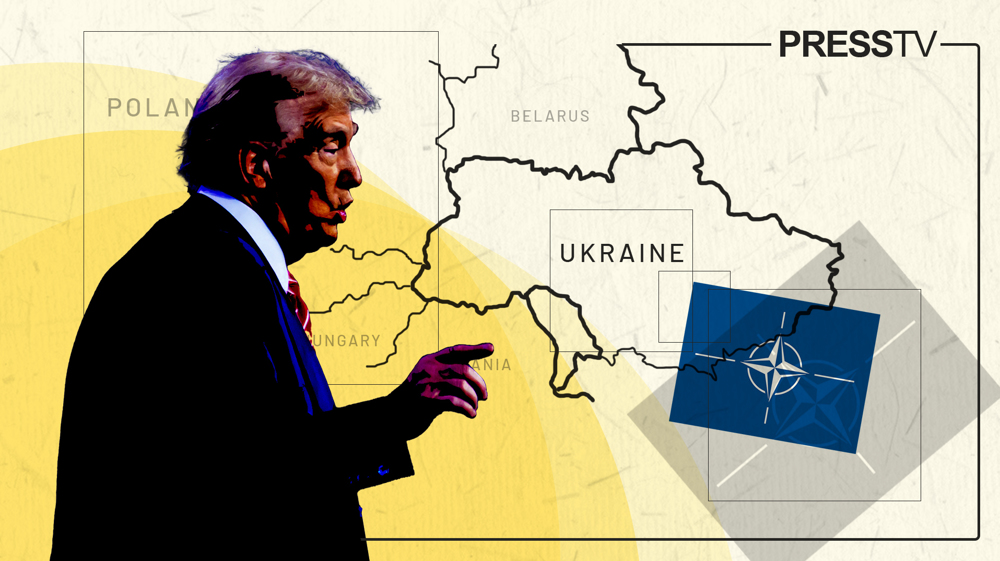US senate unveils $750-billion proposal aimed at China's growing influence
The US senate has unveiled a draft bill that would authorize Washington to modernize its nuclear weapon arsenal, in a move to counter China’s growing influence around the globe.
The Senate Armed Services Committee unveiled the $750-billion proposal on Thursday, admitting that America’s “margin of military supremacy has eroded and is undermined by new threats from strategic competitors like China and Russia.”
The bill would also authorize the Pentagon to buy more Lockheed Martin F-35 stealth jets.
China’s foreign ministry denounced the move on Thursday, saying the “legislation violates the basic norms of international law and international relations and the Chinese side, of course, firmly objects.”
“We urge the US side not to proceed the deliberation of the legislation, in order not to bring new disruption to the China-US relations,” said Lu Kang, a ministry spokesman.
Lu said that the “legislation violates the basic norms of international law and international relations and the Chinese side, of course, firmly objects.”
'Cold War mentality'
Earlier on Wednesday, China's disarmament ambassador Li Song told the world's main disarmament forum In Geneva that Washington’s foreign policy was destabilizing, baffling and redolent of Don Quixote — the Spanish fictional hero whose misplaced determination leads him on a series of doomed endeavors.
"The Cold War mentality has come back to drive the security strategy and policy of a major power," Li told the Conference on Disarmament. "In particular, the US keeps saying other countries make it feel unsafe - this is truly baffling.
This is only one of a growing number of sticking points in the US-China relationship, which also include a trade war initiated by the US as well as an aggressive campaign it launched against Chinese telecom giant Huawei.
Washington has escalated its trade dispute with Beijing over the past weeks, raising speculations that tensions could even extend beyond the trade sphere and affect other areas of contention, including Taiwan as well as the South China Sea.
The two world powers are also locked in dispute over US military presence in resource-rich South China Sea.
Beijing — which claims almost all of the South China Sea — has constantly warned the US against its military activities in the sea, saying that potential close military encounters by air and naval forces of the two countries in the region could easily trigger miscalculation or even accidents at sea or in air.
The US has been taking sides with several of China’s neighboring countries, which have competing sovereignty claims to the strategic waters.
Taiwan, the self-ruled island, is another source of tension between Beijing and Washington over which China asserts sovereignty.
Beijing has accused Washington of making "a series of moves" on Taiwan and "other issues" that harm China’s sovereignty.
The US navy said two of its warships sailed through the Taiwan Strait on Thursday.
The warships —the USS Preble, a destroyer, and USNS Walter S. Diehl, a supply ship, conducted a routine transit "in accordance with international law,” the navy said.
"The ships' transit through the Taiwan Strait demonstrates the US commitment to a free and open Indo-Pacific," it claimed. "The US Navy will continue to fly, sail and operate e anywhere international law allows."
In 1979, the US adopted the “One China” policy, but under the administration of US President Donald Trump, it has courted Taipei in an attempt to counter China.
The transit through the Taiwan Strait came as the US, Japan, South Korea and Australia kicked off naval drills in the vicinity of Guam, a US island territory in Micronesia, in the Western Pacific region.
VIDEO | Gaza marks calendar year of tragedies and horrors
Graffiti on the ruins: Lebanese activists turn Dahiyeh into a canvas of resilience
VIDEO | Yemeni forces target Israeli Ben Gurion Airport, US aircraft carrier
Iran rejects ‘unfounded’ US, British claims about involvement in Red Sea tensions
Hezbollah asserts full operational readiness, vows massive retaliation for Israeli violations
Dec. 30: ‘Axis of Resistance’ operations against Israeli occupation
UN says Israel ‘systematically hinders’ Gaza access as ICRC warns healthcare ‘obliterated’
Yemeni missiles penetrate airspace of Israeli-occupied territories ‘undetected’: Ansarullah















 This makes it easy to access the Press TV website
This makes it easy to access the Press TV website